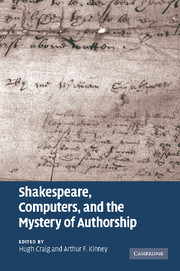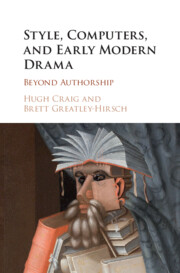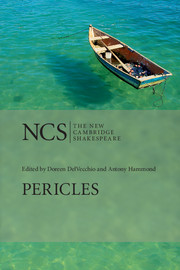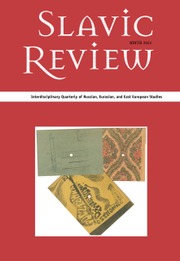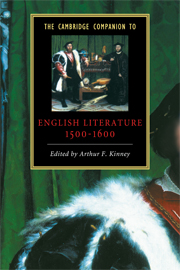Shakespeare, Computers, and the Mystery of Authorship
- Editors:
- Hugh Craig, University of Newcastle, New South Wales
- Arthur F. Kinney, University of Massachusetts, Amherst
- Date Published: August 2012
- availability: Available
- format: Paperback
- isbn: 9781107407084
Paperback
Other available formats:
Hardback, eBook
Looking for an examination copy?
This title is not currently available for examination. However, if you are interested in the title for your course we can consider offering an examination copy. To register your interest please contact [email protected] providing details of the course you are teaching.
-
In this book Craig, Kinney and their collaborators confront the main unsolved mysteries in Shakespeare's canon through computer analysis of Shakespeare's and other writers' styles. In some cases their analysis confirms the current scholarly consensus, bringing long-standing questions to something like a final resolution. In other areas the book provides more surprising conclusions: that Shakespeare wrote the 1602 additions to The Spanish Tragedy, for example, and that Marlowe along with Shakespeare was a collaborator on Henry VI, Parts 1 and 2. The methods used are more wholeheartedly statistical, and computationally more intensive, than any that have yet been applied to Shakespeare studies. The book also reveals how word patterns help create a characteristic personal style. In tackling traditional problems with the aid of the processing power of the computer, harnessed through computer science, and drawing upon large amounts of data, the book is an exemplar of the new domain of digital humanities.
Read more- Presents a detailed examination of a series of attribution problems in the Shakespeare canon, providing a reliable guide to authorship for students and scholars
- Demonstrates several different methods for attribution, which can also be applied by students to other problems
- Fosters a wider understanding of the way individuals create their own distinct patterns within a shared language
Reviews & endorsements
"Shakespeare, Computers and the Mystery of Authorship, edited by Hugh Craig and Arthur F. Kinney, takes us into a world where probabilities are assessed with mathematical accuracy...Despite the measured and cautious style with which the computational evidence is presented, there is plenty more excitement in this book."
-The Book CollectorSee more reviews"The outstanding achievement of
Customer reviews
Not yet reviewed
Be the first to review
Review was not posted due to profanity
×Product details
- Date Published: August 2012
- format: Paperback
- isbn: 9781107407084
- length: 256 pages
- dimensions: 229 x 152 x 14 mm
- weight: 0.35kg
- availability: Available
Table of Contents
1. Introduction Hugh Craig and Arthur F. Kinney
2. Methods Hugh Craig and Arthur F. Kinney
3. The three parts of Henry VI Hugh Craig
4. Authoring Arden of Faversham Arthur F. Kinney
5. Edmond Ironside and the question of Shakespearean authorship Philip Palmer
6. The authorship of The Raigne of Edward the Third Timothy Irish Watt
7. The authorship of the Hand-D addition to The Book of Sir Thomas More Timothy Irish Watt
8. The 1602 additions to The Spanish Tragedy Hugh Craig
9. Transforming King Lear Arthur F. Kinney
Conclusion Arthur F. Kinney
Appendix A. Plays in the corpus
Appendix B. A list of 200 function words
Glossary.
Sorry, this resource is locked
Please register or sign in to request access. If you are having problems accessing these resources please email [email protected]
Register Sign in» Proceed
You are now leaving the Cambridge University Press website. Your eBook purchase and download will be completed by our partner www.ebooks.com. Please see the permission section of the www.ebooks.com catalogue page for details of the print & copy limits on our eBooks.
Continue ×Are you sure you want to delete your account?
This cannot be undone.
Thank you for your feedback which will help us improve our service.
If you requested a response, we will make sure to get back to you shortly.
×
